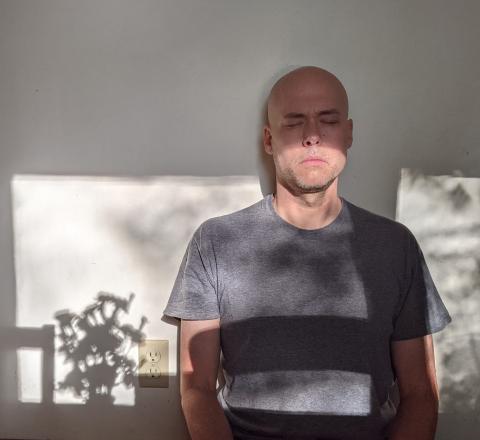Modern yoga is rooted in the Eight Limbs of Yoga, outlined by Patanjali in the Yoga Sutras. The first practice a yogi embraces is ahimsa—non-harming. It’s a complex teaching rooted in a simple lesson we all learned in kindergarten: don’t be mean. Yet today, many of us are asking: how did we get to a place where harm is endorsed by those in power?
Take the violent attack on the US Capitol on January 6th. It was fueled by divisive, hateful rhetoric. Whether or not you believe he caused it, the incoming president called it a “day of love.” This is the same man who suggested the police use “extraordinarily rough” tactics to address crime and called for “one really violent day.” This rhetoric emboldens a climate of aggression and violence. It’s antithetical to yoga’s essence of peace, nonviolence, and compassion.
A World in Pain
Words like these lead to violence. And today, many are suffering.
Consider transgender individuals, who face escalating violence and discrimination. The Human Rights Campaign has been tracking fatal violence against transgender and gender-expansive people since 2013. In 2023, they declared a “National State of Emergency” for LGBTQ+ Americans, citing the surge in anti-LGBTQ+ laws and hate crimes.
This year doesn’t get better. So far we have seen 665 anti-trans bills and twenty-nine transgender and gender-expansive people have been killed. Each life lost is a story of suffering (you can read about each of them here).
Just this week, my heart broke again. Someone who regularly attends by yoga classes at The Marsh shared that their transgender child was attacked and bloodied last week by someone claiming to be “making America great again.”
For me, encountering statistics and stories like these creates a moment of deep reflection. It’s a chance to pause, process, and consider what we can do to help. In this case, it’s a moment to ask: how do we respond to such violence and support those affected by it?
Yoga as a Call to Action
I understand that many of us are still processing grief, pain, and uncertainty. It’s okay to be in a place of mourning. Healing takes time. If you’re not yet ready to act, focus on caring for yourself. I’ve spent much of my time since the election sitting with my own pain.
But I am also organizing and learning. I’m reconnecting with activist communities I stepped away from after finishing my dissertation.
And I am turning to yoga — both my practice and yoga texts — to explore possible paths forward. For me, yoga has always been about more than personal peace. It has offered me valuable practices and ideas that help me integrate peace into how I show up in the world.
There are many interpretations of the Yoga Sutras. I often turn to more traditional translations, like Edwin Bryant’s work, which draws from ancient commentaries. Many yoga teacher training classes, however, look to modern interpretations, such as Deborah Adele’s book, which blends personal narrative with the teachings.
One of the most compelling voices in this conversation about yoga and action is Michael Stone. In Yoga for a World Out of Balance: Teachings on Ethics and Social Action, he describes why yoga is not just an inward practice but also a call to action. He writes, “it’s time to consider action in the world and inner practice as synchronistic and parallel.” For me, too, it’s not enough to sit in quiet contemplation while the world suffers. Yoga teaches us that peace isn’t just personal. It asks us to act against injustice, inequality, and hate.
At this point in my practice, I care less now about debating the “true” meaning of the Yoga Sutras and more about living those teachings. These teachings have been passed down to me, and I won’t relegate them to a shelf. I want to embody them and live them in every choice and interaction.
Peaceful Action
The Yoga Sutras tell us that yoga begins with peace. But this peace isn’t about political alignment or reactionary anger. It’s about doing what’s right and compassionate. The call to act transcends politics. It’s about living in alignment with ahimsa, compassion, and nonviolence. This is basic yoga. This is basic human dignity.
This is the yoga I teach in every class: find inner peace, and then take it into the world. Meditation on peace isn’t enough when others are suffering. Yoga calls us to challenge systems of oppression, stand up for the marginalized, and work to create a world that reflects the compassion we cultivate on our mats. The Sutras don’t dictate we must donate, volunteer, or protest — although these are powerful ways to show up. Patanjali simply asks us to examine reality and act in accordance with our values.
I feel the world is calling us to act. But I also understand that sometimes, in deep grief or exhaustion, we need space to breathe and heal. Wherever you are on your journey, know that your peace, your healing, and your activism are all valid. We are all in this together, and each of us has a role to play when the time comes.
How will we answer?

Comments